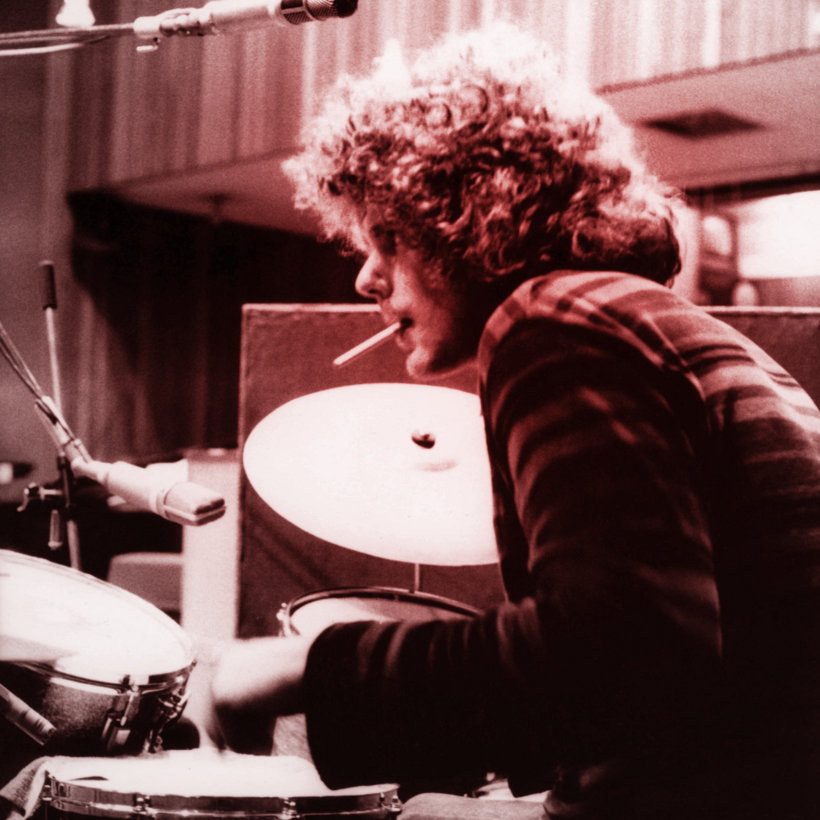The 1970s rock scene could be incredibly accommodating—hospitable, even—to sexual deviants, drug addicts, and alcoholics, but it didn’t know how to deal with someone who was genuinely insane. Drummer Jim Gordon scaled the absolute heights of music: first, as a Hollywood session drummer who played on hit records by the Beach Boys, Sonny & Cher, Glen Campbell, and many more, then as a member of Derek & the Dominos, playing alongside guitarist Eric Clapton as well as in sessions with John Lennon and George Harrison. But Gordon suffered from schizophrenia. His head was crowded with malevolent voices that commanded him ruthlessly.
The rock scene stood by and watched silently as Gordon struggled with his demons, until one day he finally snapped and brutally murdered his mother, whose voice was chief among the tormentors in his head. With that, Gordon became an instant pariah. Nobody visited him in jail or attended his trial. Despite the extraordinary accomplishments throughout his career, he was immediately forgotten when he was shuffled off to prison for the rest of his life, in 1984 at age 38. Gordon died in March 2023, at age 77, at the California Medical Facility, in Vacaville, after spending half his life incarcerated.

